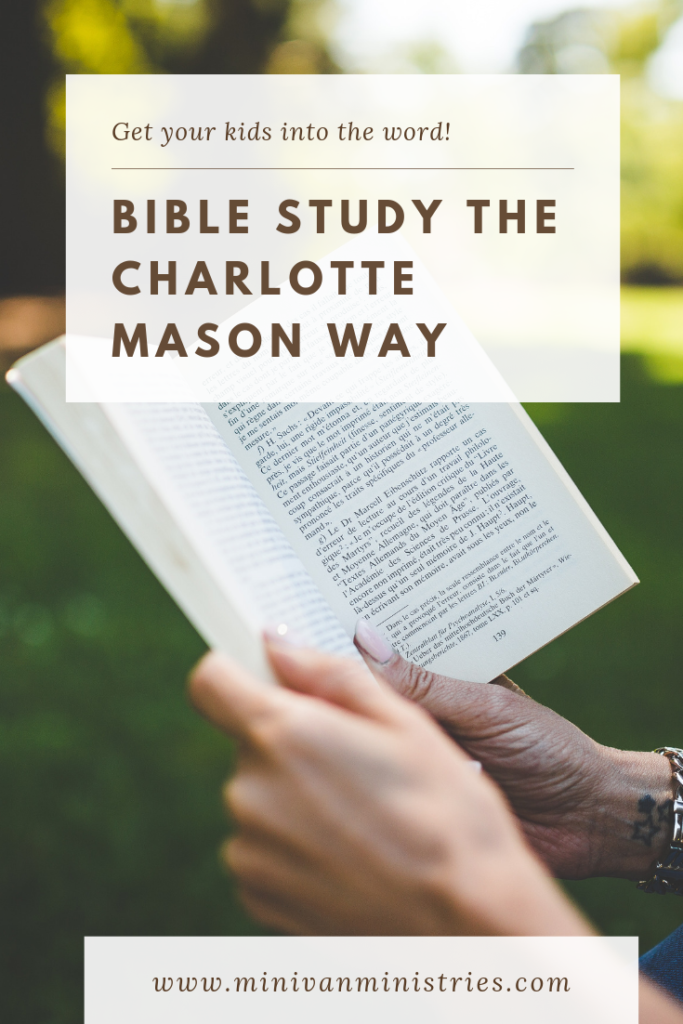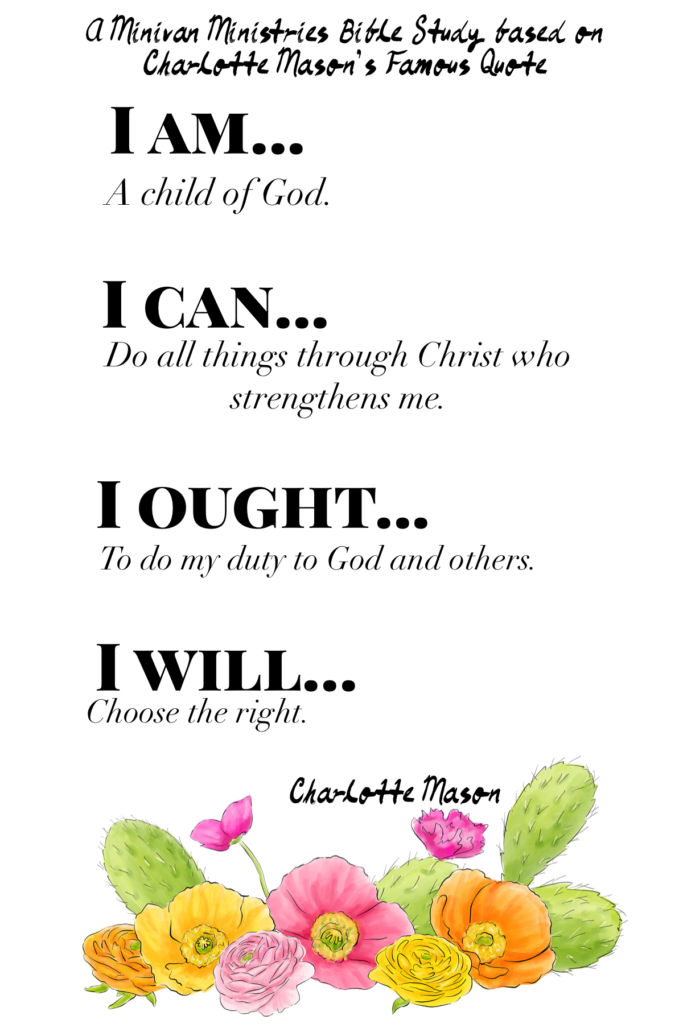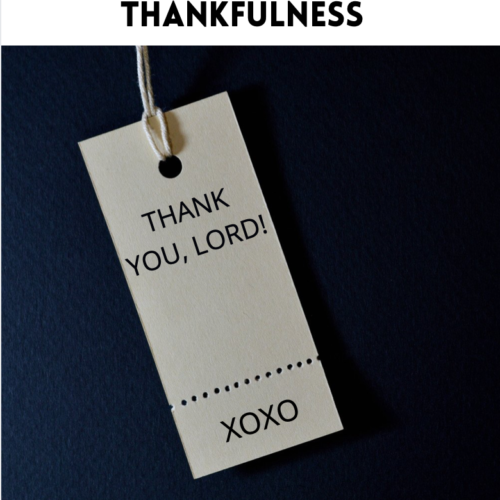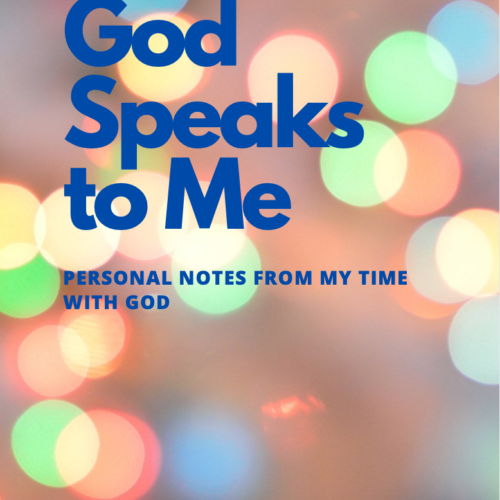Many of you have heard of Charlotte Mason, the 19th century guru on education that is still making a stir in the homeschool community today. She had lots of great ideas about how to teach various subjects, but did you know that one of those subjects was Bible study? Let’s learn about Bible study the Charlotte Mason way!

The more I learn about Charlotte Mason, the more I love her and her methods. Bible study the Charlotte Mason way is no different. I love it! What I really love is that she wants children to encounter the word of God themselves. Whether you follow Charlotte Mason’s methods or not, that’s something to believe in! She believes that children are spiritual beings, completely capable of encountering God themselves. After all, if the Word is living and active, sharper than a double edged sword, do not discount its ability to influence anyone, including children.
For the word of God is living and active, sharper than any two-edged sword, piercing to the division of soul and of spirit, of joints and of marrow, and discerning the thoughts and intentions of the heart.
Hebrews 4:12 ESV
Let’s take a closer look at Bible study the Charlotte Mason way…
The Most Important Components of Bible Study the Charlotte Mason Way
1. Background Information
Children should be presented with just enough background information to understand the Bible lesson. If there is knowledge of the time and place that will enhance the story, by all means, present it. If they need to recall what led up to this point in history, ask them about what they remember. Do not look for a bunch of interesting facts an seek out an elaborate introduction. God spoke so that we can understand Him. Much of what He says needs no explanation.
First and chiefest is the knowledge of God, to be got at most directly through the Bible.”
Vol. 6, p. 254
2. Read the Bible
Charlotte Mason advocated for the children to have direct contact with scripture. Many parts of the Bible are simple to understand and do not need to be reworded for children, especially if you choose to use a child-friendly version of the Bible. They do not need children’s Bible stories all the time, but they can have contact with the direct Word of God. Even if find a well-written Bible storybook, that should be the exception to the rule. Children should learn at least a verse or two directly from the Bible that correlates with the story. If they are able to read, they can read the Word themselves or follow along as it is read.
3. Narration
Those of you who know Charlotte Mason know that she was a big fan of narration. This is simply having the child tell what they learned from a reading. It is NOT asking a bunch of questions with predetermined correct answers. It is NOT leading a child so that they will say what you want them to say or see what YOU learned while you read. True narration helps a child form their own relationship with the Bible less, therefore making the Bible, and God, real and personal to them. A personal relationship with Jesus is what it’s all about!
Narration can be done aloud or in written form. Bible journaling through pictures is a great way to express their thoughts and feelings about a topic. They may wish to respond to the lesson in prayer or song.
4. Discuss
Narration and discussion are different because narration is when the child alone tells what he or she has learned. Discussion is a two way street. We do not want to only do narration because the things of God are deep and sometimes need to be discussed. Still, let the child lead. After hearing or seeing their narration, you will know what is important to them. Bringing in commentaries, geography, or history can greatly enhance understanding. Listen to the Holy Spirit for leading and try not to push your own agenda.
For as the heavens are higher than the earth,
so are my ways higher than your ways
and my thoughts than your thoughts. Isaiah 55:9 ESV
Isaiah 55:9 ESV
5. Memorize
Bible study the Charlotte Mason way also included a wonderful way of memorizing scripture. She expected students practice a verse until they know it. Then they reviewed it every other day while still learning new verses. Next they moved on to only reviewing it once a week, then once a month.
There are many places that you can buy premade verse cards to memorize and include in a memory verse box, but I love the idea of letting children choose verses that speak to them during their lives or pertain to Bible lessons they are learning. It brings the lessons to life even more since the word is living and active!
6. Apply
The last step of Bible study the Charlotte Mason way was to apply what they had learned. It could be something very tangible that they were expected to do, like take food to the hungry. Or it could have been something a little more abstract, like “Try to go an entire day without grumbling.” The sooner the lesson is applied, the better. This keeps the lesson fresh in their brain and makes a connection between what is written on a page in an old book (the Bible) and real life in the 21st century.
7. Prayer
“But, though there is this continual commerce between God and the Soul, the habit of prayer must be strengthened by set seasons, places, and purposes.”
Charlotte Mason
Praying during Bible study is also crucial. Actually conversing with God about what He says and how it implies to us is a must. We pray before we begin our studies that God will reveal what He wants us to learn. At the end we pray to hide it in our hearts and remember it.
What Part of the Bible Should My Child Study?
Charlotte Mason had a specific, well thought out plan about what to study at what ages. Unfortunately, in today’s busy world of families with more than one child, we all like to study the same thing together. I am also an advocate of seeing what the Holy Spirit lays on your heart. I love the idea of working through the Bible in order as well. So our family departs from doing Bible study the Charlotte Mason way here. If you only have one child, or all your children are young and you are just starting out, this might be a good plan for you.
Get In the Word
No matter how you study the Bible, getting into the word is most important. Make sure that your children are digging into the word themselves and learning to apply it to their lives.
What is your favorite method of Bible Study?

“I Am, I Can, I Ought, I Will”–A Bible Study For Your Family
Whether you study Charlotte Mason’s methods or not, this is a great Bible study for the beginning of school, or any time. Who wouldn’t want to teach their children that they are a child of God and they can do anything–including their school work that sometimes seems challenging. We want to instill a sense of purpose in what we are doing with our lives and school is part of that equation. We also want to instill a sense of determination and steadfastness of mind that they will make good choices in all that they do. To get a free copy of the “I Am, I Can, I Ought, I Will” Bible study, simply join below and enter the password that you will receive in your email. You will receive not only the Bible study, but the Charlotte Mason’s 20 Principles in a Nutshell Planner Page, and much more!









Leave a Reply